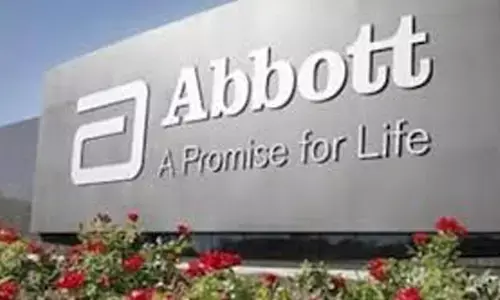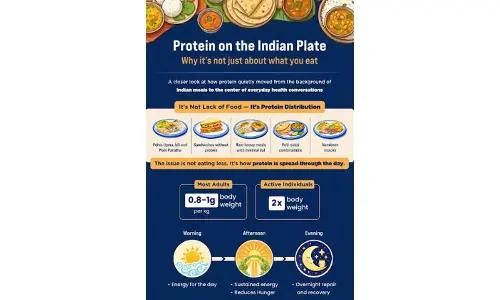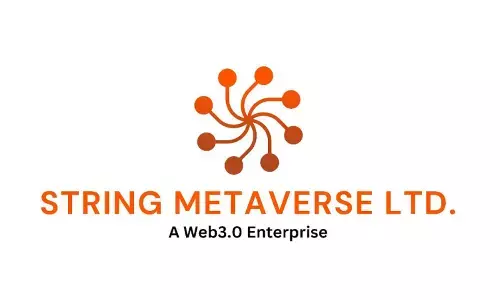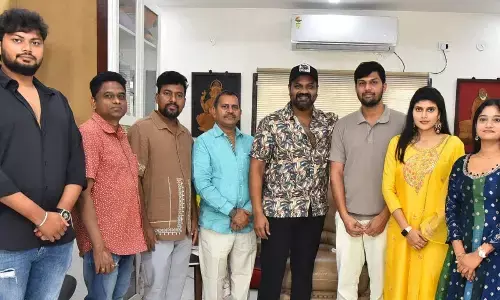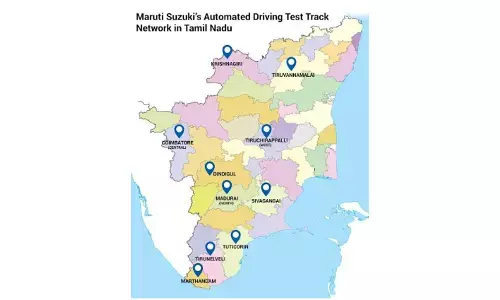Lords of all they survey: land rights project Telangana

What does a farmer see when he stands on the edge of his land and looks out at the wide expanse? He sees the green of the new sprouts or the gold of a crop waiting to be harvested. He sees the money he will fill in his pocket and the welfare of his family. He sees his past toil and his future prosperity. He sees his own destiny and dignity reflected in the brown stretch ahead of him.
More than 200 SC and ST farmers in Telangana have for the first time in the last 70 years got legal rights over their land, thanks to a land rights project. And community participation was the mantra that made it possible
What does a farmer see when he stands on the edge of his land and looks out at the wide expanse? He sees the green of the new sprouts or the gold of a crop waiting to be harvested. He sees the money he will fill in his pocket and the welfare of his family. He sees his past toil and his future prosperity. He sees his own destiny and dignity reflected in the brown stretch ahead of him.
If that farmer is told that the land he holds so close to his heart does not actually belong to him? That it is someone else’s and he needs to get out with no rights to cultivate, harvest, mortgage or sell? What if he is called upon to produce documentary evidence that the land is truly and legally his but has no clue what those papers are? What happens then?
Pagidipala Ramaiah is one such farmer. Now 75 years old, he is the owner of the biggest land holding in the village of Kannayapalli in Jangaon district of Telangana. He tills the land that he got from his father and is the only surviving one among three brothers.
“I know my grandfather had a patta and my father did. But I have no papers related to the land and I am clueless if my name figures in the land records,” Ramaiah says innocently. His son and his nephews, however, knew better and tried to get a Pattadar passbook from the revenue officials, begging them to check records.
“For the last 15 years, we made innumerable visits to the revenue offices; we approached the VRO and higher officials. We spent a lot of money, both to make trips to the Mandal HQ and also to bribe some officials. Nothing happened.
We have neither a passbook nor do we know if the revenue records have our name,” Ramaiah’s son Murali explains. Consequence: Never did the man who tills the land get a single paisa benefit from Government, no loans, no subsidies and no compensation when some of the land was acquired for a project.
It is into this confounded situation that an organisation called Landesa India stepped in. Landesa, collaborating with the Nalsar University of Law and the Telangana Revenue administration, took up a pilot project to free villages of land litigations and to identify bottlenecks in resolving cases.
For a farmer to attain full legal status as an owner it is required that one, he should be in possession of the land. Two, he should hold a Pattadar passbook and three, his name should figure in the revenue records as the owner of that particular survey number.
It is estimated that, in Telangana, 80 per cent of the landowners lack one or more of these three essentials. While some of them are fighting cases in courts, most of them such as Ramaiah or Naluguri Chandraiah, who was not old about mutation but was handed a passbook with his mother’s photo removed and replaced with his own by a wily VRO, do not even know that there is a problem with their land ownership.
The Union Government has had something called ‘National Land Records Modernization Programme’ running for the last 15 years, whose objective was to ensure that every bit of land in the country is surveyed and that every land transaction is reflected in the land records immediately. When Narendra Modi Government reviewed the project and discovered that even 20 per cent of the target was not reached, they decided to include it in Digital India programme and renamed it as DILRMP.
“Why did the Programme fail in the first place? We believe it was because there was no community involvement and land owners were not key stakeholders in it. Ideally, field reality should reflect in land records, any land transaction should immediately go online and any documents that the landowner possesses should guarantee ownership. And it cannot be done by mere administrative exercises and aerial surveys,” explains M Sunil Kumar, National Director (Land Laws & Policies), Landesa India.
It is estimated that a whopping 12 thousand crore rupees are spent on land litigation annually in our country by way of expenses borne by individuals and this does not even include the court and lawyer fee. And Landesa has identified that there could be 76 possible litigations, types of problems pertaining to land.
In this background, the Landesa project was launched as a pilot in six villages of erstwhile Warangal district – Kannayapalli, Akkarajupalli, Rangapuram, Puttala Bhupati, Gopalagiri and Kongaragidda – where farmers primarily belong to the Scheduled Castes and Scheduled Tribes.
The project may have been a painstaking process involving multiple steps but the result more than compensated for the toil of the team. More than 200 farmers in three villages received a land rights kit, with a passbook and title deed, a corrected Pahani (annual cultivation record) and the 1B.
The magnitude of the achievement is understood when we realise that these are farmers who belong to the most backward communities in society, who lack literacy and the wherewithal to know the status of their property. These are farmers who spend generations together cultivating land that is informally recognised by the village community and bear all the vagaries of nature.
These are farmers who not only never derived any benefit from the Government or access to loan facility but also fail to get any compensation due to them when their land is acquired. These are the farmers, who one day will end their life when they can no more bear the burden of their debt from private lenders.
The project, entitled ‘Community Driven Land Records Updation’, has a foolproof framework that directly involves the community. In each village, three people who have some knowledge about the village have been selected as Community Resource Persons (CRPs) and given basic training on land records.
The CRPs went to each household and conducted a basic survey to collect information and check whatever papers the landowner has. They then went into each parcel of land, prepared a rough sketch with borders. The team then cross-checked the information they have with the land records, the 1B register of ownership, the Pahani or the cultivation registry that is known as Adangal in AP and the settlement register or Sethwar.
The data was then triangulated and each owner was given a code and the problem was identified. Once a list of all issues in the village has been prepared, it was given to the Tehsildar and with Grama Sabhas, where revenue officials met the villagers and initiated the process of correction.
“This entire process takes three to six months. The project mandatorily employed paralegals, one for each Mandal, and we have been trained in handling the entire process,” explains Prabhakar Rao, a former Tehsildar, and project coordinator.
“It has been such a learning experience for us. In fact, in the first round, no one was willing to divulge any information. They gave us half or misinformation. The villagers were highly sceptical. But slowly they followed us around and after many meetings, we could give a shape to the project,” Naresh, a paralegal, who worked at the Puttala Bhupati village near Narsipatnam, recalls.
“The Central Government has sanctioned 11,000 crore rupees for the Digital India Land records project. Telangana has 10,800 revenue villages. I can assure you that a mere one lakh rupees per village can ensure the streamlining of the entire village land records,” Sunil, also an Adjunct Professor and Advisor in Nalsar’s Centre for Tribal and Land Rights, says.
“There are many other benefits too. We will know the field reality, 30,000 young people will get at least 100 days of employment and acquire crucial skills which once and for all makes them employable, records will be corrected and problems faced by at least 100 farmers will be resolved.”
The correction of land records with the involvement of the community only orients the new generation of young people in what was earlier a perfectly robust practice called Jamabandi. “I would call it a “Janata Jamabandi” and this process doesn’t even need revenue participation,” Sunil says. The beauty of the project lies in its replicability. With minimal customisation, it can be adopted in any State with fail-safe results. Landesa has now taken up this work in two villages in Suryapet district.
“In a seminar, somebody had asked a woman farmer why a patta is needed when they are already tilling their land. The woman looked back steadily and replied: “you have studied law and know the subject, is it ok if you don’t get a degree?” Sunil recalls with a laugh.
Sunil recommends something called a Land Rights Test, a veritable diagnostic tool that every land owner should use. And asks that the seven-step process of land issue verification should be conducted everywhere.
When community leads an initiative, people truly become partners in progress. When records are straight, the farmer is empowered. With legal ownership come welfare and benefit. Land value will increase; the farmer gains a sense of dignity and security. And when a class of people, suppressed and denied land rights for decades, are given a patta to their land, development truly takes off.
By: Usha Turaga-Revelli



